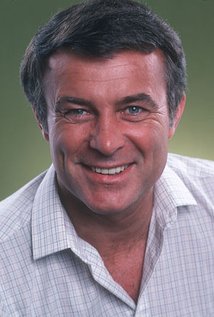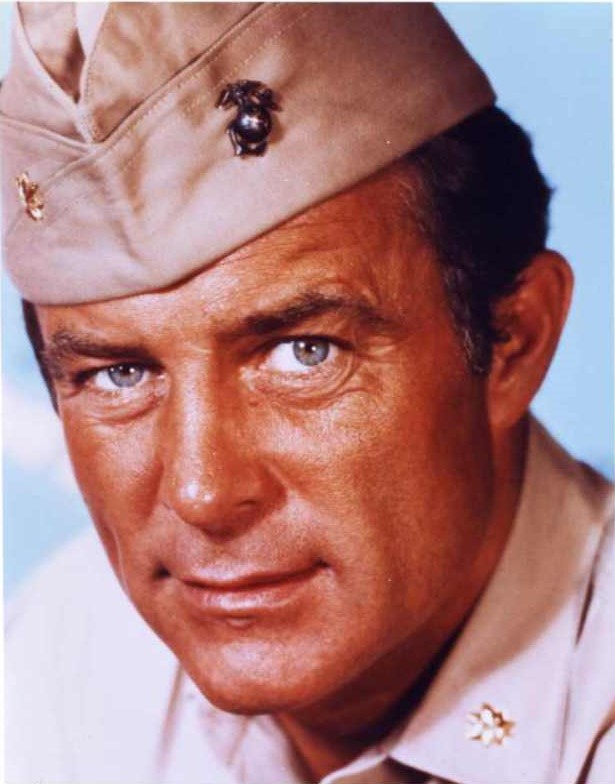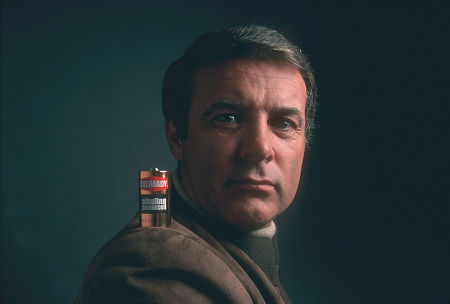
Robert Conrad
Birthday:
1 March 1935, Chicago, Illinois, USA
Birth Name:
Conrad Robert Norton Falk
Height:
173 cm
Robert Conrad was a graduate of Northwestern University, spending his first few years out of school supporting himself and his family by driving a milk truck and singing in a Chicago cabaret. Conrad befriended up-and-coming actor Nick Adams during this period, and it was Adams who helped Conrad get his first Hollywood work in 1957. A few movie bit ...
Show more »
Robert Conrad was a graduate of Northwestern University, spending his first few years out of school supporting himself and his family by driving a milk truck and singing in a Chicago cabaret. Conrad befriended up-and-coming actor Nick Adams during this period, and it was Adams who helped Conrad get his first Hollywood work in 1957. A few movie bit parts later, Conrad was signed for a comparative pittance by Warner Bros. studios, and in 1959 was cast as detective Tom Lopaka on the weekly adventure series Hawaiian Eye. Upon the 1963 cancellation of this series, Conrad made a handful of Spanish and American films and toured with a nightclub act in Australia and Mexico City. Cast as frontier secret agent James West in The Wild Wild West in 1965, Conrad brought home $5000 a week during the series' first season and enjoyed increasing remunerations as West remained on the air until 1969. There are those who insist that Wild Wild West would have been colorless without the co-starring presence of Ross Martin, an opinion with which Conrad has always agreed. The actor's bid to star in a 1970 series based on the venerable Nick Carter pulp stories got no further than a pilot episode, while the Jack Webb-produced 1971 Robert Conrad series The D.A. was canceled after 13 episodes. When Roy Scheider pulled out of the 1972 adventure weekly Assignment: Vienna, Conrad stepped in--and was out, along with the rest of Assignment: Vienna, by June of 1973. Conrad had better luck with 1976's Baa Baa Black Sheep, aka Black Sheep Squadron, a popular series based on the World War II exploits of Major "Pappy" Boyington. Cast as a nurse on this series was Conrad's daughter Nancy, setting a precedent for nepotism that the actor practiced as late as his tenth TV series, 1989's Jesse Hawkes, wherein Conrad co-starred with his sons Christian and Shane.Though few of his series have survived past season one, Conrad has enjoyed success as a commercial spokesman and in the role of G. Gordon Liddy (whom the actor admired) in the 1982 TV movie Will: The Autobiography of G. Gordon Liddy (1982). As can be gathered from the Liddy assignment, Conrad's politics veered towards conservatism; in 1981, he and Charlton Heston were instrumental in toppling Ed Asner and his liberal contingent from power in the Screen Actors Guild.As virile and athletic as ever in the 1990s, Robert Conrad has continued to appear in action roles both on TV and in films; he has also maintained strong ties with his hometown of Chicago, and can be counted upon to show up at a moment's notice as a guest on the various all-night programs of Chicago radio personality Eddie Schwartz. Show less «
[11/61, interview in Photoplay magazine] I neither condemn nor condone the morals of others. I think there are very few, really, whose condu...Show more »
[11/61, interview in Photoplay magazine] I neither condemn nor condone the morals of others. I think there are very few, really, whose conduct reflects unfavorably on the rest of us in this mythical kingdom of Hollywood. There are men who need many women in order to bolster their egos--half the time, they don't remember the girl's name afterward. But I've got a good ego to start with, and I'm too sensitive for a quick relationship with a dame and sex alone would never be enough for me. Marriage is something that goes way beyond the flesh. Each human being has his own need for security . . . It's great to have someone to lean on . . . it's great to have someone lean on you. Show less «
[about The Wild Wild West (1965)] We always put in lot more (fighting) than we really wanted to see. (The censors) would say, "We're going t...Show more »
[about The Wild Wild West (1965)] We always put in lot more (fighting) than we really wanted to see. (The censors) would say, "We're going to take out two punches . . . two of this . . . three of that . . . ". So when they finished,we were still left with what we really wanted anyway. Show less «
[3/61, interview in Motion Picture magazine] Sometimes I'm so preoccupied you have to drop a bomb to communicate with me and most of the tim...Show more »
[3/61, interview in Motion Picture magazine] Sometimes I'm so preoccupied you have to drop a bomb to communicate with me and most of the time I only average four hours sleep. I don't mind. I wanted to work this hard. Show less «
[10/62, asked in interview in Photoplay magazine if his daughter were to marry as a teenager like he did] If some sixteen-year-old punk were...Show more »
[10/62, asked in interview in Photoplay magazine if his daughter were to marry as a teenager like he did] If some sixteen-year-old punk were to come to me and say, "Sir, I want to marry your daughter" I'd say, "Fine", and escort him to an analyst. The average boy that age isn't remotely capable--from any point of view, including the emotional--of supporting a family. Show less «
[10/62, interview in Photoplay magazine] If one of the girls came to me before she had finished high school and announced that she had inten...Show more »
[10/62, interview in Photoplay magazine] If one of the girls came to me before she had finished high school and announced that she had intended to marry a boy with no job and little education, I'd forbid it--just like a stern father in a melodrama. Show less «
NEXT PAGE

Officer Hummell
















